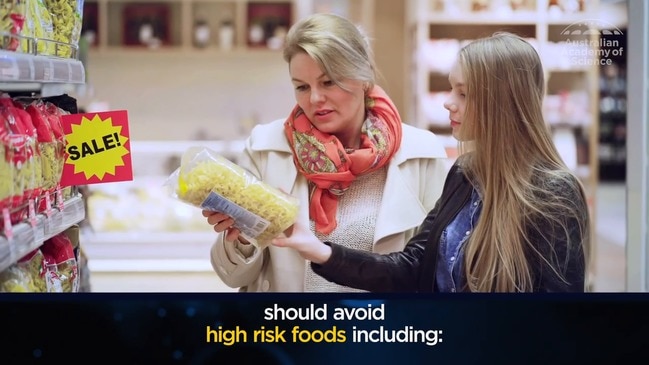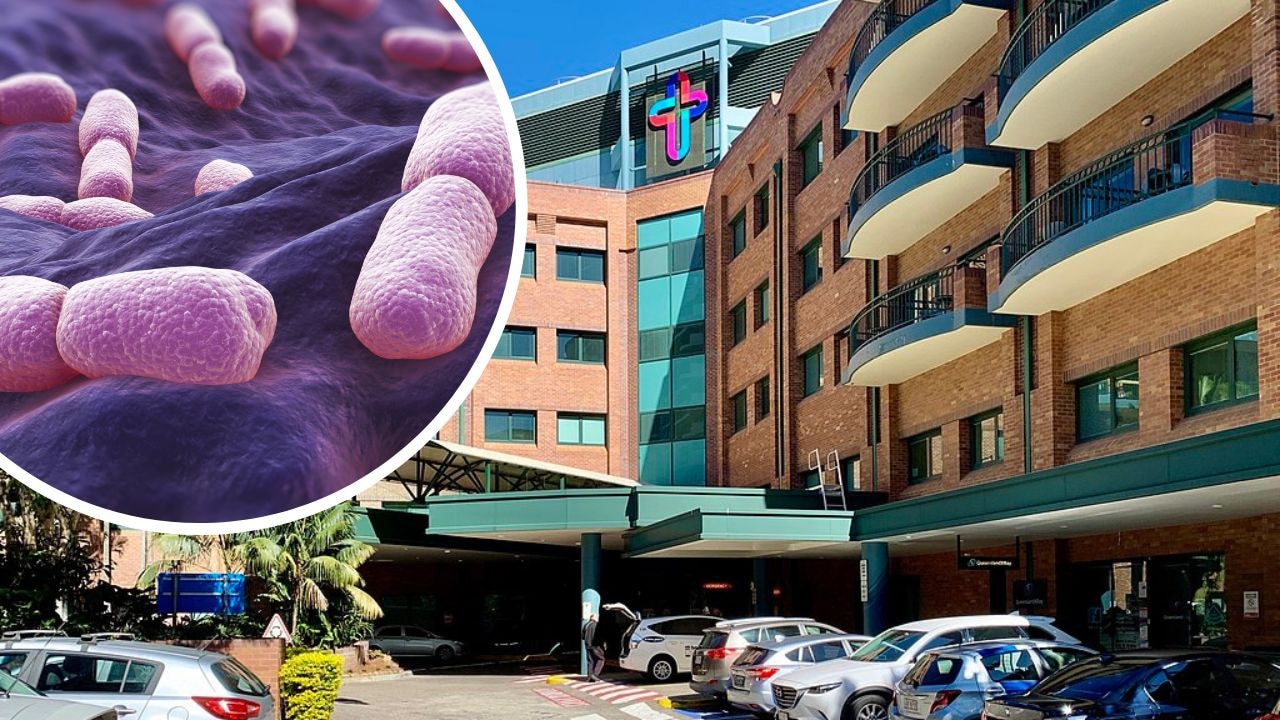Potentially deadly listeria detected at three South East Queensland hospitals
One of Australia’s top infectious diseases experts has given insight into the complex task facing the Queensland hospitals investigating the cause of a “mystery” listeria outbreak.

QLD News
Don't miss out on the headlines from QLD News. Followed categories will be added to My News.
One of Australia’s top infectious diseases experts has given insight into the complex task facing the Queensland hospitals investigating the cause of a “mystery” listeria outbreak.
Cases of potentially deadly listeria have been detected in three of the state’s hospitals, sparking a major investigation by a team of infectious disease experts to locate the food source.
The revelation of the outbreak came as Chief Health Officer John Gerrard reported that Queensland Health is the lead agency in one of three multijurisdictional probes into spates of listeria cases across the country.
Sources revealed to The Sunday Mail that the Mater Private is one of the impacted hospitals but the government would not name the other two hospitals, which are located in Metro North and Sunshine Coast Hospital and Health Services regions.

“To date there have been nine cases reported across four states, all linked through genetic studies. Five cases were diagnosed in Queensland and four of those people reside in Queensland,” Dr Gerrard said.
Those infected are all over 40 and have underlying health problems.
The CHO confirmed there was the potential for a rise in cases as it can take up to two months for symptoms to appear after eating food contaminated with listeria.
“The source of infection is currently unknown as no single common food was able to be linked to all cases,” the CHO said.

“We are investigating several potential food sources, with tests currently underway,” Dr Gerrard said in a statement on Sunday.
“We expect more results to come through in the coming week.”
University of Sydney honorary professor Robert Booy said the first port of call for the investigating teams was to determine any common food sources or whether there was any link between food supplier or distributor.
“The public health people rapidly investigate this by what foods have been eaten. Once they have decided on the risky food they will take samples, they put it in a lab and they grow the germs from the food,” Prof Booy said.
“Likewise, they will look at the supplier. If it has been sourced individually or sourced by the same distributor.”
On Saturday, Dr John Gerrard said the source of infection was unknown as no single common food had been linked to all the cases.
“That’s why more investigation is underway. The mystery is a concern and needs urgent investigation,” Prof Booy said.
“The food doesn’t look spoiled. It looks normal, tastes normal.”
Prof Booy said listeria was a type of disease that typically targeted vulnerable people, with the most at risk of severe illness including the elderly, pregnant women and people with weakened immune systems.
“Healthy people are quite unlikely (to get it),” he said.
There have been eight cases of listeriosis reported in Queensland this year, compared to nine cases reported in the same period in 2019.
Dr Gerrard confirmed there had been no reported deaths.
Food Standards Australia New Zealand is also working with state and federal authorities to monitor the outbreak.
“Listeria is common in the environment and can contaminate different types of food. It is tolerant to low temperatures so can grow in food even if it is stored in the refrigerator,” a spokesman said.
“The best way to avoid Listeria is to cook food thoroughly, reheat food until it is steaming hot, wash fruit and vegetables thoroughly, refrigerate leftovers quickly and not snack on food past its use-by date.”
Listeria monocytogenes is a bacteria that is capable of causing a serious infection in humans known as invasive listeriosis.
Listeriosis usually causes only a mild illness but can be deadly. It can progress to septicaemia and/or meningitis (known as invasive listeriosis).
Those at most risk of severe illness include the elderly, pregnant women and people with a weakened immune system, such as diabetics, cancer and transplant patients, people who are HIV positive and those with a history of alcohol abuse.
Listeriosis is primarily a foodborne disease transmitted by ingestion of contaminated food such as ready-to-eat processed meats, soft cheeses, pre-prepared salads, raw vegetables, pate and shellfish. Whether or not a person becomes infected can depend on the concentration of organism on the food and if they have a weakened immune system.
It is believed that Mater staff met with infectious disease experts this week to discuss the outbreak and to draw up a plan to minimise spread.
A Mater spokesman confirmed that the hospital is liaising with a Metro South Public Health Unit investigation into “a small number of listeria cases at health facilities in South East Queensland”.
“A number of cases have also been reported in New South Wales and Victoria. OzFoodNet is coordinating a national investigation into the outbreak. Affected patients have been treated in accordance with best practice,” the spokesman said.
Mater infectious disease expert Paul Griffin told The Sunday Mail that investigators were working hard to locate the source.
“We are taking the outbreak very seriously. There is a fine line in public health cases like this. It is important not to frighten patients and work out when to notify. This has all been considered,” he said.
There was an outbreak of listeria at the Queensland Children’s Hospital in 2019 that originated in a batch of ham sandwiches.



